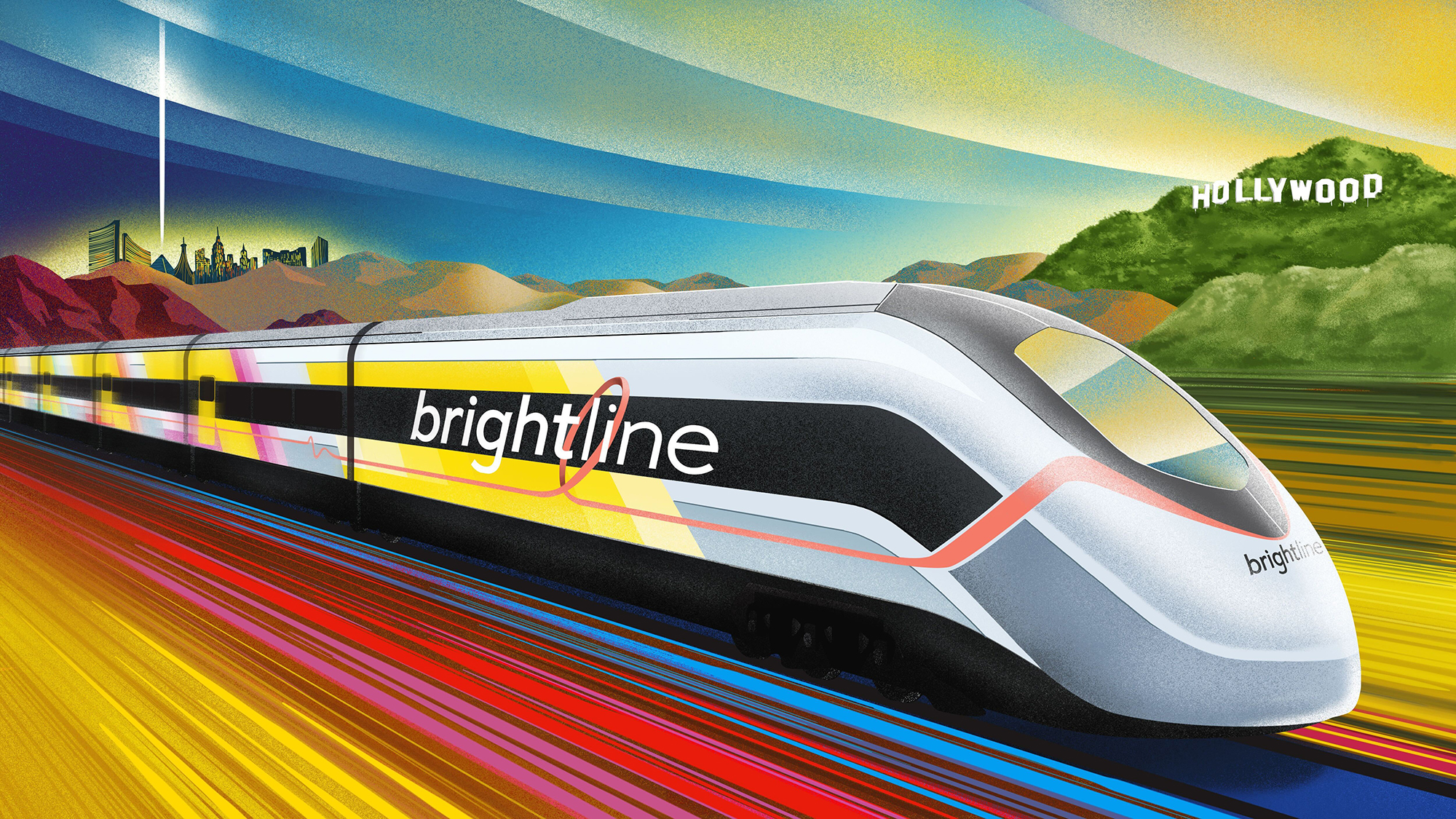

Builders have officially broken ground on a new $12 billion train that could zoom travelers between Las Vegas and Los Angeles in just under two hours by the end of the decade. The new train, which is considered the first “high-speed” rail in the United States, could cut down commute time for travelers and reduce greenhouse gas emissions that would otherwise be emitted from cars and planes. Brightline, the firm responsible for the project, received $3 billion in support from the federal government as part of the 2021 bipartisan Infrastructure law.
Department of Transportation Secretary Pete Buttigieg, who was one of several Biden Administration officials on site for a groundbreaking ceremony Monday, described the moment as a “major milestone in building the future of American rail.” The ceremony symbolically took place on Earth Day.
“Partnering with state leaders and Brightline West, we’re writing a new chapter in our country’s transportation story that includes thousands of union jobs, new connections to better economic opportunity, less congestion on the roads, and less pollution in the air,” Buttigieg said in a statement.
Brightline expects its trains will depart every 40 minutes from a station outside of the Vegas strip and another one in the LA suburb of Rancho Cucamonga. When it’s completed, the train will travel at 186 miles per hour, making it the fastest train in the US and comparable to Japan’s famous bullet trains. For context, Brightline’s most recently completed train connecting parts of Florida is estimated to top out around 130 miles per hour. Both of those still fall far short of the speed achieved by the world fastest commuter train in Shanghai, which can reportedly reach a speed of 286 miles per hour. Still, the new train could complete the 218 mile trip between Sin City and a suburb of the City of Angels in just 2 hours and 10 minutes. That same trip would take about four hours by car, and that’s without substantial traffic.
Once built, the trains will reportedly include onboard Wi-Fi, restrooms, and food and drinks available for purchase. Brightline hasn’t provided an exact price for how much an individual train ticket will cost but has instead said they expect it to be roughly equivalent to the price of an airline flight. Brightline reportedly believes the train could attract 11 million one-way passengers annually once it’s up and running.
“Today is long overdue, but the blueprint we’ve created with Brightline will allow us to repeat this model in other city pairs around the country,” Brightline founder Wes Edens said in a statement.
The US Department of Transportation estimates the new train could cut back 400,000 tons of carbon dioxide per year and create 35,000 new jobs. It could also help foster new, much-needed competition. Amtrak, the nation’s primary long distance rail provider, has long held a monopoly over long distance rail in the US, but many areas still remain unserved. Prior to this project, Las Vegas, for example, did not have Amtrak service. Brightline is looking to build out more trains in the coming decade, with a focus on connecting areas that commuters find too close to fly and too far to comfortably drive.
American high-speed rail is having a moment (finally)
US infrastructure policy has long favored automobiles over long-distance rail and mass transit, much to the consternation of climate activists who argue an over reliance on gas burning cars is contributing to worsening climate change. But there are signs the country’s attitude toward rails is beginning to change. Brightline, the same company attempting to link Las Vegas and LA, recently completed a first-of-its-kind train linking Miami, Aventura, Fort Lauderdale, Boca Raton, and West Palm Beach in Florida. Brightline reportedly claims its Florida train had 258,307 passengers in March.
Elsewhere, other new high-speed train routes are being considered in Texas, the Pacific Northwest and other parts of California. Those efforts, if they materialize, will be made possible in part by billions of dollars worth of grants set aside for rail as part of the infrastructure law. Still, receiving funds and beginning projects are only the beginning of the battle. Rising costs and routing disputes can delay and complicate and delay actual development. One proposed rail line running roughly 300 miles between San Francisco and LA was first approved by voters in 2008 and has still yet to materialize. As of today, nearly two decades later, less than a quarter of that rail line has been completed. Brightline is hoping it can avoid those complications with its new high-speed rail. If it does, commuters could expect to make the trip between Sin City and Hollywood by 2028.

